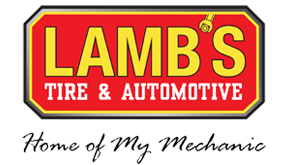Car Air Filters & Replacement in Austin, TX
What it does: Particles like mold and mildew, pollen, microbes, and dust can easily harm engine parts. Air filters keep the air that moves in to the engine clean from clutter. The majority of vehicles have 2 various sorts of air filers. The internal combustion air filter filtrations system the air pulled into the engine and avoids added wear on the engine by eliminating pollutants. The cabin air filter operates to cleanse the air that moves into the cabin with the ventilation system by eliminating unsafe elements from the air conditioning and heating systems.
Get Car Air Filter Replacement in Austin, TX
Why service is very important: Dirt and particles can easily hurt engine parts, sluggish performance, as well as avoid air flow in the cabin. A filthy air filter could cause complications with gas economy, efficiency, discharges, and sometimes can cause added engine repairs. Worn or unclean cabin air filters can negatively impact AC performance and may also pose a prospective health danger for the driver and any passengers.
Car Filters might have to be changed if you have:
- Reduction of engine power or fuel economy
- Emissions concerns
- Odd, wet, or musty smells when the vent out is on
Lamb’s Tire & Automotive offers Car Air Filter Replacement for Austin, TX
It’s suggested that the cabin air filter be changed every 12,000 miles, or at least yearly. Internal combustion air filters should be spot checked often, and need to be changed every 3,000 – 15,000 miles or with your oil change. Autos steered in extreme roadway conditions, dirty roadways, off-roading, roadway construction, or icy roadways treated with ice salt, require the air filters altered much more often.
Air filters keep the air that moves into the engine tidy and free from debris, and prevents additional wear on the engine by removing contaminants. Our very experienced and friendly mechanics are always happy to answer any type of concerns you might have about your air filters.
Call Lamb’s Tire & Automotive soon to book your air filter repair service. Lamb’s Tire & Automotive is thrilled to be your local auto repair center and provider of Austin, TX tires.
Proudly Serving the Following Locations:
- South Lamar
- North Lamar
- Far West
- 290 West
- Southpark
- Slaughter
- Research
- Bee Cave – 12221 FM 2244
- Bee Cave II – 11711 RR 2244
- Lakeway
- Leander
- Georgetown
- Pflugerville
- Cedar Park – 501 N Bell Blvd
- Cedar Park II – 2620 E Whitestone Blvd
- Brushy Creek – 15909 Great Oaks Dr
- Brushy Creek II – 16350 RR 620
- Teravista
- Four Points
- Lake Creek
- McNeil
Frequently Asked Questions
It’s hard to give a specific time or mileage figure because the life of the filter depends on how much crud it ingests. A filter that lasts 20,000 or even 30,000 miles on a vehicle that’s driven mostly on expressways may last only a month or two in a rural setting where the vehicle is driven frequently on gravel roads. Changing it annually or every 15,000 miles for preventative maintenance may be a good recommendation for the city driver, but not its country cousin.
Regardless of the mileage or time, a filter should be replaced before it reaches the point where it creates a significant restriction to airflow. But when exactly that point is reached is subject to opinion.
Bring your vehicle in to a Lamb’s Tire location and we’ll help you determine if you need an air filter change.
Fuel economy, performance and emissions begin to deteriorate and get progressively worse until the dirty filter is replaced.
A slightly dirty filter actually cleans more efficiently than a brand new filter. That’s because the debris trapped by the filter element helps screen out smaller particles that try to get through. But eventually every filter reaches the point where it causes enough of a pressure drop to restrict airflow.
Removing the filter and holding it up to a light will show you how dirty it is. If it’s really caked with dirt, it obviously needs to be replaced. Trying to shake or blow the dirt out is a waste of time because too much of it will be embedded in the filter fibers.
Most vehicles do not have an indicator. Many heavy-duty trucks have a “restriction” meter on the air filter housing that signals when the filter is dirty enough to need replacing. But lacking such a device, the best you can do is guess.








